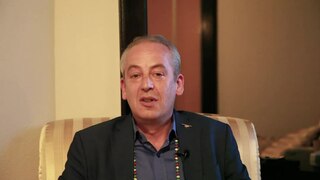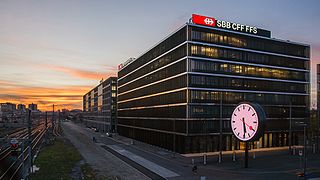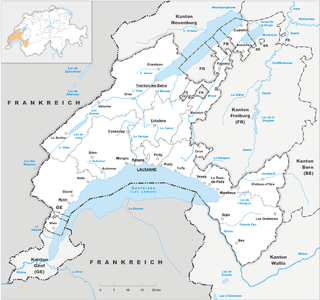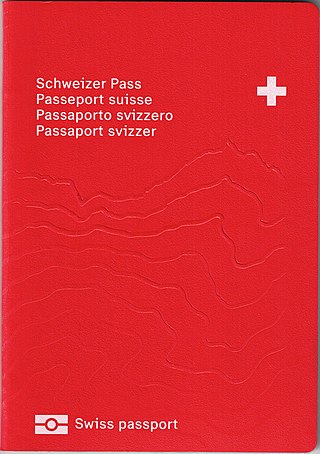
German is a West Germanic language mainly spoken in Western and Central Europe. It is the most widely spoken and official or co-official language in Germany, Austria, Switzerland, Liechtenstein, and the Italian province of South Tyrol. It is also an official language of Luxembourg and Belgium, as well as a recognized national language in Namibia. Outside Germany, it is also spoken by German communities in France (Alsace), Czech Republic, Poland, Slovakia, and Hungary (Sopron).

Romansh is a Gallo-Romance language spoken predominantly in the Swiss canton of the Grisons (Graubünden). Romansh has been recognized as a national language of Switzerland since 1938, and as an official language in correspondence with Romansh-speaking citizens since 1996, along with German, French, and Italian. It also has official status in the canton of the Grisons alongside German and Italian and is used as the medium of instruction in schools in Romansh-speaking areas. It is sometimes grouped by linguists with Ladin and Friulian as the Rhaeto-Romance languages, though this is disputed.

Switzerland, officially the Swiss Confederation, is a landlocked country located in west-central Europe. It is bordered by Italy to the south, France to the west, Germany to the north and Austria and Liechtenstein to the east. Switzerland is geographically divided among the Swiss Plateau, the Alps and the Jura; the Alps occupy the greater part of the territory, whereas most of the country's population of 9 million are concentrated on the plateau, which hosts the largest cities and economic centres, including Zürich, Geneva and Basel.
Swiss German is any of the Alemannic dialects spoken in the German-speaking part of Switzerland, and in some Alpine communities in Northern Italy bordering Switzerland. Occasionally, the Alemannic dialects spoken in other countries are grouped together with Swiss German as well, especially the dialects of Liechtenstein and Austrian Vorarlberg, which are closely associated to Switzerland's.

The four national languages of Switzerland are German, French, Italian, and Romansh. German, French, and Italian maintain equal status as official languages at the national level within the Federal Administration of the Swiss Confederation, while Romansh is used in dealings with people who speak it. Latin is occasionally used in some formal contexts, particularly to denote the country.
Standard High German (SHG), less precisely Standard German or High German, is the umbrella term for the standardized varieties of the German language, which are used in formal contexts and for communication between different dialect areas. German is a pluricentric Dachsprache with currently three codified specific national varieties: German Standard German, Austrian Standard German and Swiss Standard German.

Swiss Federal Railways is the national railway company of Switzerland.

The "Swiss Psalm" is the national anthem of Switzerland.

Vaud ,(German; Kanton Waad) more formally the canton of Vaud, is one of the 26 cantons forming the Swiss Confederation. It is composed of ten districts, and its capital city is Lausanne. Its coat of arms bears the motto "Liberté et patrie" on a white-green bicolour.

The Swiss franc is the currency and legal tender of Switzerland and Liechtenstein. It is also legal tender in the Italian exclave of Campione d'Italia which is surrounded by Swiss territory. The Swiss National Bank (SNB) issues banknotes and the federal mint Swissmint issues coins.

Alemannic, or rarely Alemannish, is a group of High German dialects. The name derives from the ancient Germanic tribal confederation known as the Alemanni.

The Lombard language belongs to the Gallo-Italic family and is a cluster of homogeneous dialects that are spoken by millions of speakers in Northern Italy and southern Switzerland, including most of Lombardy and some areas of the neighbouring regions, notably the far eastern side of Piedmont and the extreme western side of Trentino, and in Switzerland in the cantons of Ticino and Graubünden. The language is also spoken in Santa Catarina in Brazil by Lombard immigrants from the Province of Bergamo, in Italy.

The Swiss Broadcasting Corporation is the Swiss public broadcasting association, founded in 1931, the holding company of 26 radio and television channels. Headquartered in Bern, the Swiss Broadcasting Corporation is a non-profit organisation, funded mainly through radio and television licence fees (70%) and making the remaining income from advertising and sponsorship.

The Swiss people are the citizens of the multi-ethnic Swiss Confederation (Switzerland) regardless of ethno-cultural background or people of self-identified Swiss ancestry.
Swiss Standard German, or Swiss High German, referred to by the Swiss as Schriftdeutsch, or German: Hochdeutsch, is the written form of one of four official languages in Switzerland, besides French, Italian, and Romansh. It is a variety of Standard German, used in the German-speaking part of Switzerland and in Liechtenstein. It is mainly written, and rather less often spoken.

The Italian language in the Italian Switzerland or Swiss Italian is the variety of the Italian language taught in the Italian-speaking area of Switzerland. While this variety is mainly spoken in the canton of Ticino and in the southern part of Grisons, Italian is spoken natively in the whole country by about 700,000 people: Swiss Italians, Italian immigrants and Swiss citizens with Italian citizenship.

A Swiss passport is the passport issued to citizens of Switzerland to facilitate international travel. Beside serving as proof of Swiss citizenship, they facilitate the process of securing assistance from Swiss consular officials abroad.
Swiss-German Sign Language is the primary deaf sign language of the German-speaking part of Switzerland and of Liechtenstein. The language was established around 1828. In 2011 it was estimated that 7,500 deaf and 13,000 hearing people use DSGS. There are six dialects which developed in boarding schools for the deaf in Zürich, Bern, Basel, Lucerne, and St. Gallen, as well as in Liechtenstein.
Feminist language reform or feminist language planning refers to the effort, often of political and grassroots movements, to change how language is used to gender people, activities and ideas on an individual and societal level. This initiative has been adopted in countries such as Sweden, Switzerland and Australia, and has not been linked to higher gender equality.













